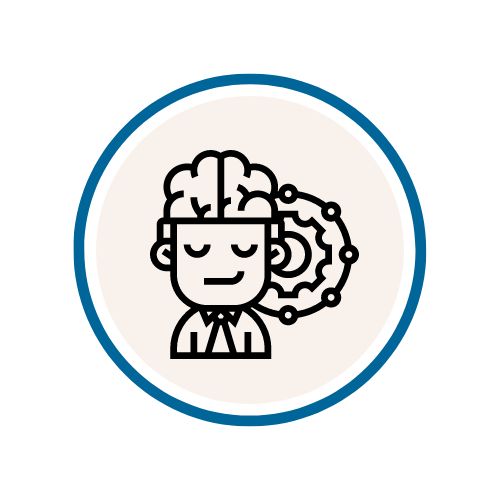
ADHD
ADHD (attention deficit hyperactivity disorder) is a developmental, neuropsychiatric disorder. Symptoms of ADHD include inattention, hyperactivity and impulsivity.
Difficulties with attention can appear, for example:
- problems staying focused on tasks or activities, such as during lectures, conversations or long reading
- wandering thoughts
- forgetting things
- sensitivity to ambient sounds
- overfocusing on interesting things, leaving the most important things undone
- as negligence errors
Hyperactivity and impulsivity may appear, for example:
- as a continuous movement, fidgeting
- restlessness and impatience
- quick decision-making, “acting without thinking”
- as a quick boredom of things
- excessive talking, outspokenness
ADHD is essentially related to difficulties in executive functioning, which means that planning and implementing one’s own activities may be challenging. Challenges in executive functioning can be seen, for example, as difficulty getting started, time management challenges, leaving things unfinished or bouncing things off; difficulty concentrating on the essential activity.
It’s important to remember that the brain of a person with ADHD works differently – ADHD is definitely not stupidity, laziness, or indolence!
ADHD and higher education studies
ADHD affects studying very individually. It can bring challenges to studying, but also strengths! Higher education studies require quite a bit of self-direction, which often challenges the progress of a person with ADHD. Managing your studies as a whole can be difficult when you need to plan your studies and time use independently. Time management and schedules slip due to difficulties in getting started and prioritizing. Attention deficits can affect reading exams or make it difficult to concentrate on lectures, making what you are learning not memorable.
ADHD can also manifest itself in studies as courage to jump into new challenges and the ability to utilize creativity in advancing studies. It is important to identify your own strengths and harness them as a resource for your study path.
ADHD and higher education are by no means an impossible equation: self-knowledge, planning skills and effective study methods can be developed. It is also possible to receive support for planning one’s own studies and facilitating learning. The most important thing is to find suitable methods that support studying with ADHD.